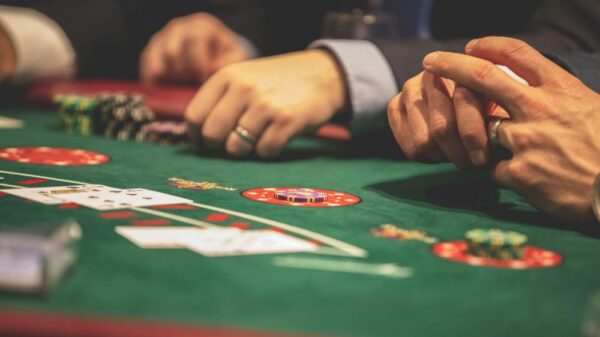Throughout British television and film history, casinos and bookmakers have played important roles in suspense-filled scenes and have been selected backdrops for pivotal parts of a storyline. From Peaky Blinders to Hustle, Snatch, and The Gambling Man, casinos and bookmakers have been the setting of some memorable scenes in British television and film.
And despite society slowly moving towards the concept of online casino entertainment, physical casinos and bookmakers as a setting will always be a valuable tool at the disposal of television and film producers. With digital influences such as online casinos providing much of the contemporary entertainment and inspiration, casino and betting scenes are also a stark reminder of popular pastimes.
Although the new online versions of casino classics are growing in popularity with sharper graphics and game play features constantly developing, the power of television and cinema can evoke all thoughts and feelings of land-based casino nostalgia. A screenplay could not be written based on Esports action or bonus buy slots at the Daily Star for example but with the longevity of television and cinema, there will at least be one place where the traditional art of casino play will be celebrated and remembered.
What makes casinos so special on the screen?
For producers, casinos are an extremely versatile setting to deploy in a scene due to the magnificence, size, natural buzz, and the selection of casino games such as poker and blackjack that can be used to symbolise a character’s rise or downfall in a film, purely by decisions made in the game. The crowd aspect is also a vital component to creating an atmospheric scene with larger numbers of people creating a natural aurora around the characters and the casino action.

Best British Poker Hands
While international films such as 21, Ocean’s Eleven, and The Hangover feature games such as blackjack and roulette in the iconic casino capital of Las Vegas, there have been a couple of prominent British actors who have won big on the poker table, in somewhat differing settings.
Casino Royale (2006)
The game of poker in particular can be used to evoke all kinds of atmospheres and emotions such as suspense, comedy, tension, and excitement. In James Bond: Casino Royale, Bond (Daniel Craig) takes on Le Chiffre (Mads Mikkelsen) in a high-stakes poker game in Montenegro that would go on to help Bond unravel the mystery behind banker, Le Chiffre. In a scene packed with high tension, with Bond and Le Chiffre positioned opposite each other along with an assortment of other high rollers around the table, the deadwood is slowly whittled away, leaving the two main protagonists to duel it out.
Vesper Lynd (Eva Green) can barely watch as millions get staked in all-in bets before Le Chiffre raises to 12 million. The music cuts and gasps are drawn from the audience as Bond goes 41.5 million all in, forcing Le Chiffre’s to follow suit. As cards are revealed, a flush and full house are beaten by Le Chiffre’s higher full house, before the tension is finally cut with rippling applause after Bond reveals a straight flush full of spades, 4 to the 8.
The scene between Craig and Mikkelsen goes down as one of the finest moments in film history featuring casino play, and although not completely accurate, is an example of the successful deployment of poker in cinema.
Only Fools and Horses: A Losing Streak (1982)
Another poker match played in less glamorous surroundings, but also demonstrates the value of casino in television is in Series 2, Episode 3 of the hilarious British sitcom Only Fools and Horses. In this topsy-turvy, brilliant piece of screenwriting, Del Boy plays a “non-conformist” game of poker with Boycie.
With Boycie cheating, Del Boy decides to give him a taste of his own medicine by trumping Boycie’s four Kings with his own, stashed “two pairs of Aces,” after betting Trigger’s car, his jewellery and everything in the flat. The comedic reactions of first Del Boy at seeing four Kings, and then Boycie’s disbelief at seeing four Aces draw raucous laughter from the audience in another piece of classic British screenplay.
